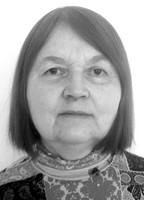Physical Culture values in economics students' professionaleducation system
Фотографии:
ˑ:
Teoriya i praktika fizicheskoy kultury №5 2017, pp.29-30
Dr.Ss.Phil., Professor E.Y. Novikova
PhD, Associate Professor Е.V. Malakhova
PhD, Associate Professor А.V. Galukhin
P.A. Kostin
Plekhanov Russian University of Economics, Moscow
The study considers the values-driven attitudes to the academic physical education in the context of the existing system of professional values. The physical culture related values are studied in a variety of aspects including the healthy lifestyles; physical activity; professional codes of conduct; professional habits; career paths; professional communications; communal consciousness; and the young peoples’ subcultures. The study data and analyses made it possible to classify the guiding values into the following four types. The first-type values consider physical culture as a component of a healthy lifestyle and a progress driver in any kind of professional career. The second-type values consider it dominating in the professional image aspect. The third-type values consider physical culture a communication component in the professional recreation domain. And the fourth-type values consider it a basis for the professionally important physical qualities and skills. The study has found a contradiction in the guiding values due to the cognitive component of physical culture with the healthy lifestyle related aspect coming in conflict with the professional pragmatics. The study provides theoretical grounds for a wider application of health-improvement fitness technologies in the initiatives to build up professionally important qualities and promote corporate sport events and corporate sport clubs as the health-improvement system elements.
Keywords: values, physical culture, profession, lifestyle, students.
References
- Dobrotvorskaya S.G. Organizatsionno-metodicheskie usloviya orientatsii studentov na zdorovy obraz zhizni [Procedural and methodological conditions for orientation of students to healthy lifestyle]. Teoriya i praktika fiz. kultury, 2016, no. 9, pp. 28-30.
- Kondrakov G.B., Andryushchenko L.B., Yablochkina I.V., Podoruev Yu.V. Kontseptsiya formirovaniya rekreatsionnoy fizicheskoy kultury v ekonomicheskom vuze [Recreational physical culture formation concept for economic university]. Teoriya i praktika fiz. kultury, 2016, no. 9, pp. 22-24
- Malakhova E.V. Molodezhnaya subkultura i sotsialnaya mifologiya [Youth subculture and social mythology]. Izvestiya MGTU MAMI, 2014, vol. 5, no. 4 (22), pp. 116-121.
- Novikova E.Y. Professionalnoe razvitie lichnosti i obrazovanie [Personality professional development and education]. Pravo i obrazovanie, 2015, no. 9, pp. 40-49.
- Firileva J.E. Kontseptsiya adaptivnogo fitnesa v sisteme ozdorovleniya cheloveka [Adaptive fitness concept in health improvement system]. Teoriya i praktika fiz. kultury, 2016, no. 8, pp. 30-31.
- Khristolyubova A.A., Kadomtseva E.M., Ponomarev V.V. Sotsiologicheskiy analiz ponimaniya fenomena fizicheskoy podgotovlennosti i ego znachimosti v uchebnoy deyatelnosti studentok [Sociological analysis of interpretation of physical fitness phenomenon and its role in female students' studies]. Teoriya i praktika fiz. kultury, 2016, no. 7, p. 43.
- Shutova T.N., Rybakova E.O., Sharav'eva A.V. Korrektsiya fizicheskogo sostoyaniya zhenshchin sredstvami akvafitnesa [Correction of Women’s Physical Condition by Means of Aqua Fitness]. Teoriya i praktika fiz. kultury, 2015, no. 1, pp. 55-57.




 Журнал "THEORY AND PRACTICE
Журнал "THEORY AND PRACTICE